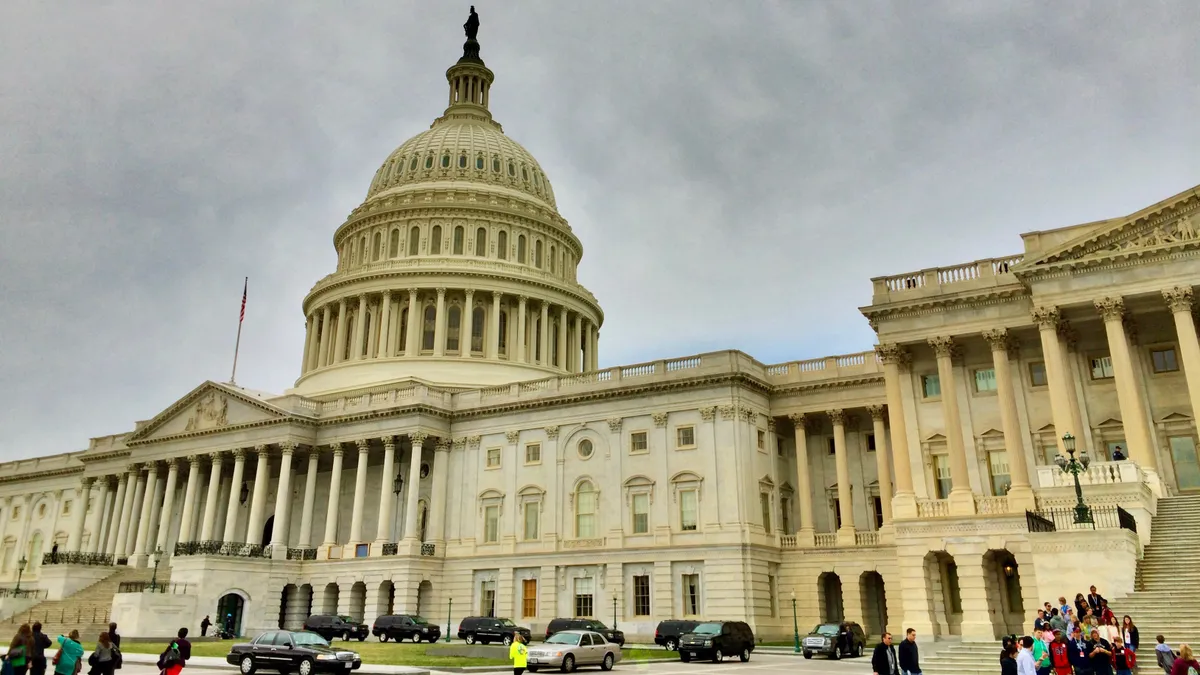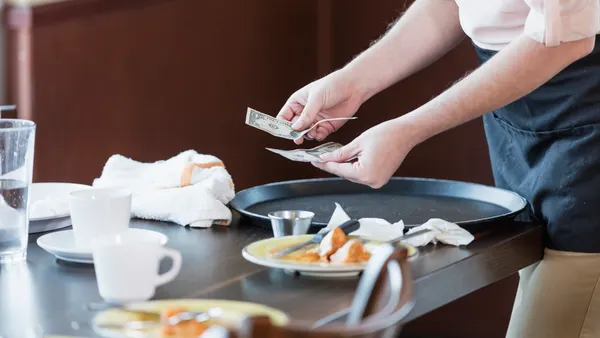UPDATE: June 5, 2020: President Donald Trump signed the Paycheck Protection Program Flexibility Act into law on Friday.
UPDATE: June 4, 2020: The Senate passed a House-passed Paycheck Protection Program reform bill Wednesday, called the Paycheck Protection Program Flexibility Act, and it is now ready for President Donald Trump's desk.
"We can't wait any longer. Businesses are really suffering for lack of these changes," Senate Minority Leader Chuck Schumer said on the Senate floor. "We must get this done. Businesses are going under every day."
Dive Brief:
- The House passed a bill Thursday that will give restaurants more flexibility in how they use funding from Payment Protection Program loans, according to CNBC. The Senate has created a similar plan, but will not meet again until next week.
- The bill would reduce the percentage of PPP funds restaurants are required to spend on payroll from 75% to 60%; extend the time period businesses have to use the funds from two months to six months; extend the time restaurants have to pay back their loans; allow restaurants that receive loan forgiveness to defer payroll taxes; and delay a June 30 deadline to rehire employees.
- "We have expressed, since the beginning of the COVID crisis, that our industry’s unique operations require a flexible recovery program. ... While the PPP program can be a critical tool for helping restaurants and small businesses, changes to the program are needed so it can be utilized as intended." Sean Kennedy, the National Restaurant Association's EVP of public affairs, said in a statement. "Our focus will now shift toward achieving similar bipartisan results in the Senate because enacting these PPP changes will help restaurants get the relief they need to get employees back to work and the industry on the path to recovery."
Dive Insight:
The law addresses the restaurant industry's biggest concern with PPP requirements, which is that operators in this industry need money to cover expenses like rent and utilities more than they need to hire back their entire workforce.
Because most restaurants are operating skeleton crews under dining room closures, many business owners and industry experts argue that the PPP's current requirement to spend 75% of loan funds on staff is at odds with the industry's needs. And even though some restaurants have found creative ways to keep employees on payroll, either through workshare programs or by training them to be delivery drivers, operators are worried that a high margin for error comes with this requirement — one that could put them on the hook for the loan amount if they allocate funds incorrectly.
But industry concerns remain. Earlier this month, 24 attorneys general pushed Congress to amend PPP so that lenders wouldn't be able to favor certain applicants over others — an issue that many independent restaurants have complained about — and to provide better digital support for applicants and better lender guidance. These demands also reflect the Independent Restaurant Coalition's and NRA's past requests for PPP change.
"More work from Congress is needed to ensure independent restaurants have the resources needed to stay in business," IRC said in a statement emailed to Restaurant Dive on May 12. "The PPP remains an eight week band-aid for an 18 month problem overwhelming independent restaurants, who face nearly insurmountable odds as they meet new requirements for public safety. ... That's exactly why we've asked Congress for a stabilization fund; to ensure these businesses can reopen, stay open, and re-employ 11 million people."
This isn't the first change to the program. In early May, the U.S. Department of the Treasury eased PPP's forgiveness requirements, and will no longer reduce the forgiven amount of a loan if laid off employees choose not to return to work. This was a positive step forward for restaurants, many of whom are concerned that workers could choose to stay on unemployment if it pays better than their hourly earnings.
But this law's focus on the payroll piece of PPP requirements could be the most significant benefit to restaurants to come of recent amendments.













